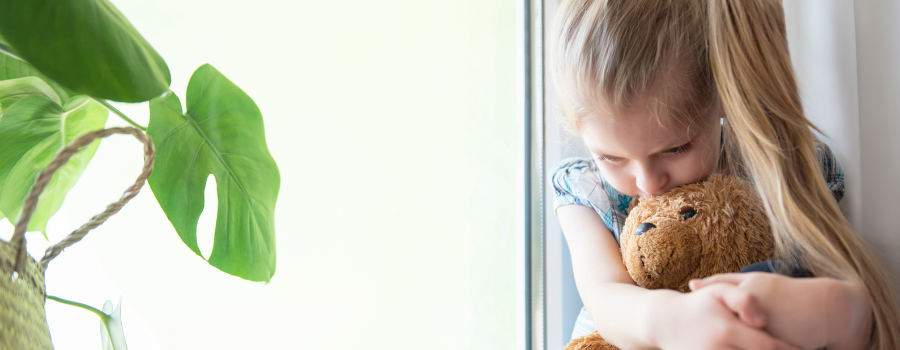
It has been said that everyone grieves differently. When you bring children into the process, it can be even more complex. Many children are already sensitive and are at various levels of their ability to understand. They may be limited in their abilities to express their grief.
As a caring adult, how can you help with a child who is grieving the loss of a loved one? Here are six tips to keep in mind:
Keep Your Own Feelings In Mind
A good place to start is reflecting on your own feelings of grief, or an experience you may have had as a child. There are not only feelings of sadness, but perhaps confusion and even fear. Before reaching out to a grieving child, make sure you are in touch with your own feelings.
Use Easy to Understand Language
Your words may not have to be perfect, but use clear, simple, easy to understand language. The passing of a loved one can be confusing enough for a young one without using metaphors.
Don’t Be Afraid to Show Emotion
When talking about the death of a loved one, don’t be afraid to show, and share, emotions. Showing emotions can demonstrate that sadness at a loss is okay and acceptable. Discuss why they are sad and encourage them to remember the good times. Keep in mind that uncontrollable anger in front of a child may not be healthy. Have a frank, age appropriate discussion that demonstrates that sadness and grief is normal.
Listen Attentively
It is not always easy to listen to a child attentively. We can too often dismiss their feelings as too simple. Listening attentively and with caring and concern is critical. Their feelings are important and while their ability to express themselves may not be nuanced or sophisticated, how they feel is important. Ask them questions and encourage their questions. Listening can be an invaluable way to tap into they are feeling.
Be Available
It is also important to let a child know that you are available as needed when the child has questions or is feeling particularly sad. It can be easy for us to get caught up in our own grief. Ignoring the feelings of children can add another layer of isolation. Do your best to make yourself available.
Demonstrate Positive Grief Responses
There are some positive things we can take away from grief. We can learn how to better appreciate those we love who are around us daily. We can hold on to precious, positive memories. Grief can help us mature and grow. The loss of a loved one is about more than just grief and sadness. It can also be about growth and maturing. You can help children to see beyond the grief.
When discussing a loss with a child it is important not to dismiss their feelings. Include them when appropriate. They may never thank you for it, but they may always remember and appreciate your caring concern.
At Fares J. Radel Funeral Homes and Crematory of Greater Cincinnati and Northern Kentucky, we have been serving families in the region for generations. We uniquely offer modern, contemporary services along with our over a century of experience. For pre-planning or for a current need, please feel free to reach out to us.


Post a comment